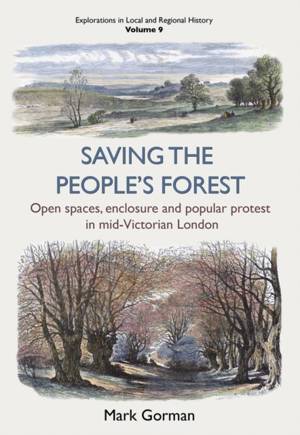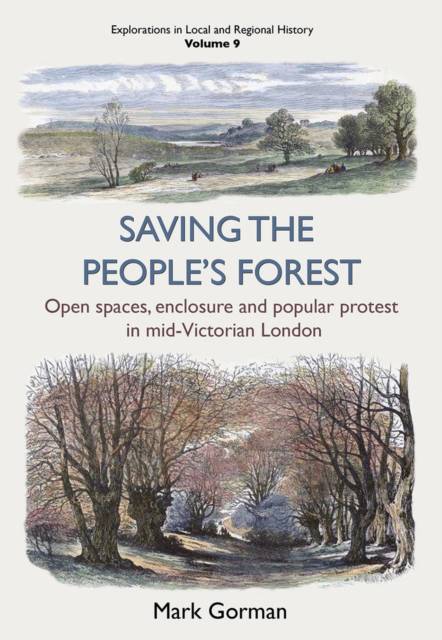
Bedankt voor het vertrouwen het afgelopen jaar! Om jou te bedanken bieden we GRATIS verzending (in België) aan op alles gedurende de hele maand januari.
- Afhalen na 1 uur in een winkel met voorraad
- In januari gratis thuislevering in België
- Ruim aanbod met 7 miljoen producten
Bedankt voor het vertrouwen het afgelopen jaar! Om jou te bedanken bieden we GRATIS verzending (in België) aan op alles gedurende de hele maand januari.
- Afhalen na 1 uur in een winkel met voorraad
- In januari gratis thuislevering in België
- Ruim aanbod met 7 miljoen producten
Zoeken
Saving the People's Forest
Open Spaces, Enclosure and Popular Protest in Mid-Victorian London Volume 9
Mark Gorman
€ 29,45
+ 58 punten
Omschrijving
The growth of 19th-century London was unprecedented, swallowing up villages, commons, and open fields around the metropolitan fringe in largely uncontrolled housing development. In the mid-Victorian period opposition to this unbridled growth coalesced into a movement that campaigned to preserve the London commons. The history of this campaign is usually presented as having been fought by members of the metropolitan upper middle class, who played out their battles mainly in parliament and the law courts. In this fascinating book Mark Gorman tells a different story--of the key role played by popular protest to preserve Epping Forest and other open spaces in and near London. He shows how throughout the 19th century such places were venues for both radical politics and popular leisure, helping to create a sense of public right of access, even 'ownership.' London's suburban growth was partly a response to the rising aspirations of an artisan and lower middle class who increasingly wanted direct access to open space. This created the conditions for the mid-Victorian commons preservation movement, and also gave impetus to distinctive popular protest by proletarian Londoners.
Specificaties
Betrokkenen
- Auteur(s):
- Uitgeverij:
Inhoud
- Aantal bladzijden:
- 256
- Taal:
- Engels
- Reeks:
Eigenschappen
- Productcode (EAN):
- 9781912260416
- Verschijningsdatum:
- 1/06/2021
- Uitvoering:
- Paperback
- Formaat:
- Trade paperback (VS)
- Afmetingen:
- 170 mm x 241 mm
- Gewicht:
- 385 g

Alleen bij Standaard Boekhandel
+ 58 punten op je klantenkaart van Standaard Boekhandel
Beoordelingen
We publiceren alleen reviews die voldoen aan de voorwaarden voor reviews. Bekijk onze voorwaarden voor reviews.









